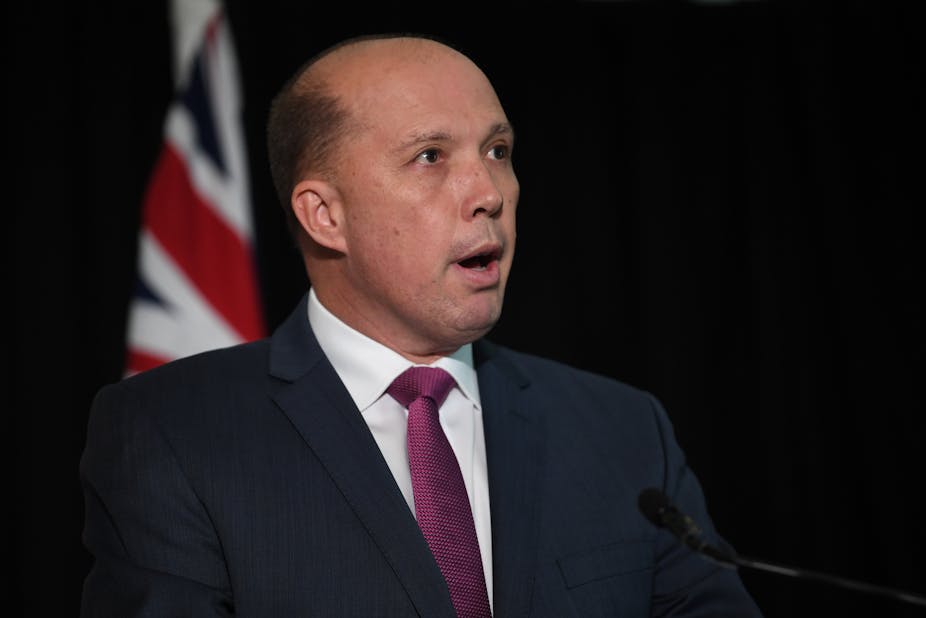The government has finally found an issue it can cast in terms of “national security” on which it can get a fight with Labor.
Bill Shorten usually sticks leech-like to bipartisanship on anything with even a whiff of “security”. But now the opposition has said “enough” on the proposals to toughen the criteria for people seeking citizenship.
In political terms, the question is whether the government can turn this into an effective wedge against Shorten, claiming he is “soft” on citizenship. Labor’s challenge is to keep the debate as one about what are reasonable conditions to place on aspiring Australians.
The government believes it is in tune with the mainstream; its eye to the politics was obvious when Malcolm Turnbull went out of his way to make a statement on the matter at Tuesday’s news conference on his latest energy security initiatives.
“The Labor Party does not value Australian citizenship enough to say, as we do, that it must be more than simply the outcome of an administrative tick-and-flick form-filling process,” Turnbull said. Immigration Minister Peter Dutton invokes national security and claimed Shorten has been “mugged by the left of his party”.
The proposed legislation requires potential citizens to have a higher English proficiency than at present. Additionally, the applicant will need to have lived in Australia as a permanent resident for at least four years (just one at present).
There will be a defined process to assess a person’s commitment to Australian values, helped by the longer residency requirement; people will have to show what they’ve done to integrate into the community.
The immigration minister will acquire the power to override decisions of the Administrative Appeals Tribunal on citizenship, subject to a court appeal.
Labor is opposing the bill as a whole; it wants it referred to a Senate inquiry, and says that then, if it considers there are parts worth supporting, it would ask the government to bring them back in separate legislation.
Aware Labor is treading on potentially dangerous ground, citizenship spokesman Tony Burke is trying to fireproof it. “Don’t lie and pretend something is national security when it is not,” he said.
The opposition is challenging in particular the longer qualifying period and the harder English test.
The government has a case with the former; comparable countries make residents wait between five and eight years before applying for citizenship. It is on more dubious ground on English testing, where the standard is to be raised to “competent”.
This is a level where the person has “an effective command of the language despite some inaccuracies, inappropriate usage and misunderstandings. They can use and understand fairly complex language, particularly in familiar situations.”
Burke pointed out that the questions now asked of those seeking citizenship are in a test “which is written in English. If you can’t speak English, you can’t pass the test.”
He warned the new requirement would “guarantee there will be a group of permanent residents who live here their entire lives and are never invited to take allegiance to Australia and are never able to be told by the Australian government: ‘you belong’. That is a fundamental change in our country.”
While it is desirable, not least for their own benefit, to have aspiring citizens acquire good English, people can also be excellent citizens even though their English language will always be poor. Many of us know people like that.
One motive for upping the English requirement might be fears about inward-looking communities. But insisting on the proposed level of English proficiency makes for a very un-level playing field, discriminating against those from certain countries.
Immigrants should be encouraged to become citizens – surely that is likely to be a positive for national security because it promotes a more unified nation. A “two-class” situation in the migrant/refugee population, where some can’t make the cut because of the language issue, is not what we want.
Dutton dismisses Labor’s concerns about the longer qualifying period and the harder language test.
Possibly wearing a focus group on his sleeve, he says: “The Australian public wants to see an increase in the English language requirement, they want to see people meet Australian laws and Australian values”.
There have been mild concerns in Coalition ranks about people who are about to qualify for citizenship under current rules but will face waiting longer. Dutton has told colleagues to bring him any particular cases.
If the government is playing politics with its citizenship move, Labor will have its eye on what might be opportunities on the ground.
These changes won’t be popular with some in ethnic communities, where Labor seeks votes.
On the other hand, some of those who’ve entered the citizenship tent can be less than sympathetic to aspirants.
The government may get the legislation through regardless of Labor’s stand, via the crossbench. If so, the opposition would have to decide whether it would undertake to alter the law if it won the election, or just move right on.

